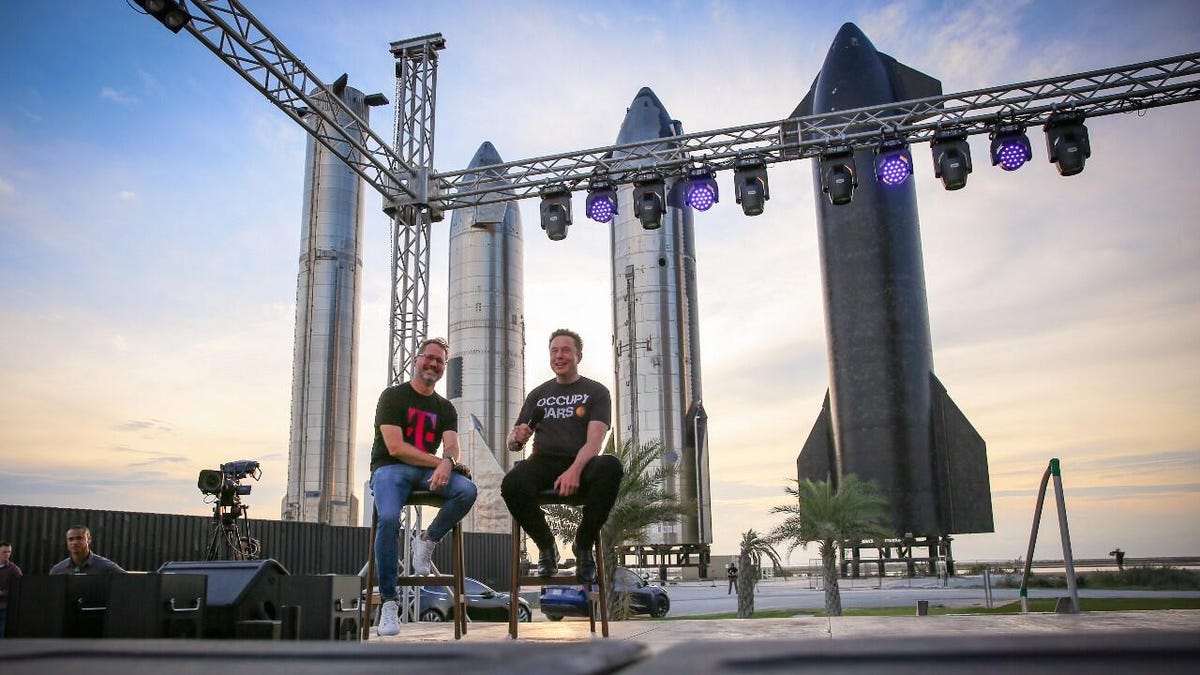 Why You Can Trust CNET
Why You Can Trust CNET SpaceX Wants You to Connect Your Smartphone Directly to Starlink
T-Mobile could close coverage gaps from space as soon as 2024.

T-Mobile CEO Mike Sievert and SpaceX CEO Elon Musk.
SpaceX has the green light to grow its Starlink broadband-from-space constellation to more than 10,000 small satellites in low-Earth orbit over the next several years, and it hopes to offer service for smartphones via T-Mobile by the time just half of those flying routers are operating.
SpaceX filed an application with the US Federal Communications Commission on Dec. 6 seeking authorization to equip some of its second-generation Starlink satellites with "direct-to-cellular" hardware.
This is a key regulatory hurdle Elon Musk's space company must clear to deliver on an August announcement with T-Mobile to connect the two data networks in the name of eradicating mobile dead zones, at least in much of the US.
The application is also a key follow-on to an FCC approval announced Dec. 1 that authorizes SpaceX to launch 7,500 "Gen2" Starlink satellites before the decade is out.
The new capability would allow Starlink "to provide voice, messaging, and basic web browsing at theoretical peak speeds of up to either 3.0 Mbps or 7.2 Mbps peak upload... and up to either 4.4 Mbps or 18.3Mbps on the downlink," the filing reads.
Other companies are working to offer space-based mobile broadband, including Texas-based AST SpaceMobile, which recently launched a test satellite with a huge array of antennas that's relatively easy to spot from the ground (much to the chagrin of astronomers).
SpaceX has already launched 3,500 first generation Starlinks and says it could offer "full and continuous" smartphone coverage with 2,000 equipped Gen2 satellites as soon as 2024.

